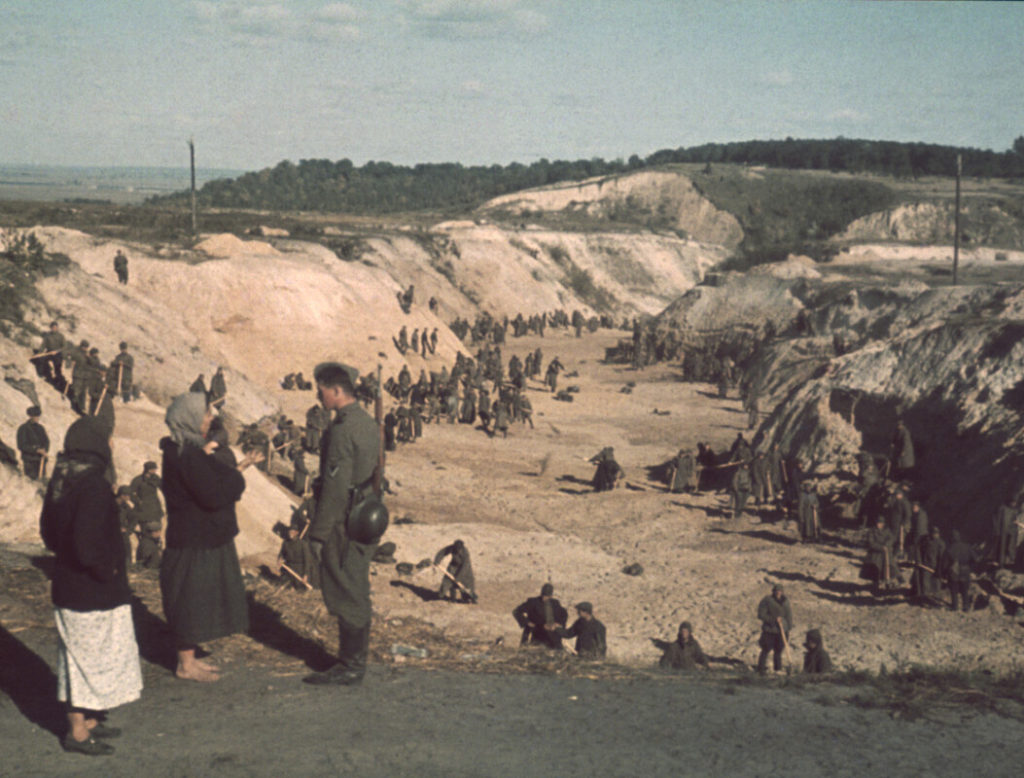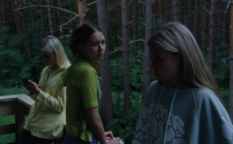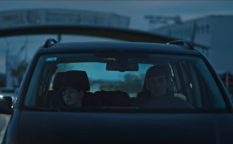Review: Babi Yar. Context (2021)

Eighty years ago, in 1941, the Nazi German troops invaded the Soviet Union. Arguably, the invasion lead to their demise four years later and in the time between, they left the trail of blood and dead bodies as well as the stench of the crimes against humanity. One of those crimes was Babi Yar Massacre that took place at the eponymous ravine near Kiev in which 33,711 Jews were killed over the course of two days, September 29 and 30, 1941. The total body count of the place climbed up to 100,000 or 150,000 people during the Nazi occupation of the Soviet Ukraine and the victims consisted of not only Jewish people, but also Roma, communists and Soviet prisoners of war.
After the war, some of the perpetrators were captured and tried for their crimes in Kiev Trial in 1946, even before Nuremberg. Poems were written, musical opuses composed and memorials held to commemorate the victims, but not even Soviets wanted to surface the whole truth, for whatever reason. In that kind of setting, personal truths and tragedies got a bit lost in the game of big numbers.
After dealing with the Soviet past, both pre- and post-war in his documentary collages of archival material in the films The Trial and State Funeral, and even the final collapse of the Union in The Event, the Ukrainian documentarian Sergei Loznitsa digs into the account of the war time in Ukraine, especially regarding the Holocaust in Babi Yar. Context that premiered at Cannes. We got to see it at Karlovy Vary International Film Festival where it was screened as a part of Horizons non-competitive programme.
Loznitsa is clearly one of the grand masters of the contemporary documentary filmmaking, and the topic of the Holocaust on the soil of the former Soviet Union is an underused and under-explored topic in the world of documentaries, so it is logical that he digs into it the way he knows best. On the other hand, his political attitudes make him a bit of a controversial figure that might not be the right one for dealing with such a topic. The end result is a tad surprising, but holistic, deeply contextual, ethical and heart-felt documentary that puts Babi Yar in a broader context of the Ukrainian and Soviet politics.
The events are presented usually in a chronological order, from the Nazi invasion until the post-war findings and trials. The context Loznitsa presents is complicated and it has a lot to do with the politics of the Ukraine, USSR, Nazi Germany and the rest of Eastern Europe. There are some hard truths to be learnt there, such as the fact that the Ukrainian forces collaborated with the Nazis on the genocidal projects and that the Nazi regime enjoyed a wide support (or at least a blissful indifference) by the large chunk of the Ukrainian common folk, that there were parades to celebrate Hitler, the Nazi governors and their Ukrainian allies, and that far less people showed up on the parades to celebrate the Red Army liberators two years later.
The massacre itself is never shown, but we here the first-hand testimonies from different sides (the Nazi sergeant is appropriately emotionless) and horrific survival stories. The footage is interrupted with textual cards that mark the dates and the events explaining the context. One of them, Vasilii Grossman’s 1943 publication “Ukraine Without Jews”, describing who the people murdered at Babi Yar actually were, positioned right at the half of the film, serves as the emotional core of the film.
Loznitsa deals with the events and the people around them by the means of collage of archival footage, some of it official, some privately sourced. All of it is masterfully restored, matched with the exquisite sound design by Vladimir Golovnitskiy and perfectly edited by Loznitsa himself, Danielius Kokanauskis and Tomasz Wolski. Some of it is even additionally colourised, but it does not break the feeling of the truth, and even the occasional time-hoping between the periods and contexts does not obstruct the film’s flow.
Babi Yar. Context is more than just a context to Babi Yar. It is a strongly unpleasant, yet immersive experience (like a lot of Loznitsa’s work in general) and strong humane message.
Countries: Ukraine, Netherlands
Languages: Ukrainian, Russian, German
Runtime: 121’
Directed by: Sergei Loznitsa
Written by: Sergei Loznitsa
Edited by: Sergei Loznitsa, Danielius Kokanauskis, Tomasz Wolski
Sound design by: Vladimir Golovnitskiy
Produced by: Sergei Loznitsa, Maria Choustova
Production companies: Atoms & Void, Babyn Yar Holocaust Memorial Center
















